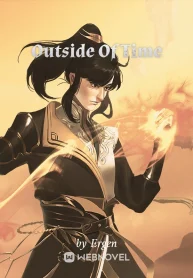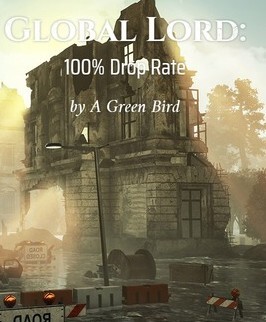Chapter 715 Credit
Needless to say what the outcome of this air battle is, the German army suffered a crushing defeat, with 90 aircraft in three brigades, only 11 BF109s and 5 "Henschels" were able to return to the airport.
I have to say that the BF109 is indeed powerful. Under such circumstances, it can shoot down more than 30 Soviet fighters and then escape back to 11 fighters, although these 11 fighters are all injured to varying degrees.
This is still in the case of the reserve team arranged by Shulka playing a role.
Originally, there should have been more than 20 enemy planes that escaped, including the "Henschel", because the German army adopted the "dividing into parts" tactic... This tactic is very useful when surrounded and chased by the enemy, especially air combat.
The reason is that fighter planes fly fast. If they gather together like a group of moving bees, it will be easy to chase them. You only need to follow and fight.
But if it runs away suddenly like a flock of frightened birds, the Soviet army can only disperse and chase. In the process of dispersing to find the target, there will inevitably be repetitions, that is, more than a dozen Soviet fighter planes Simultaneous pursuit of a target, while some targets are not pursued.
Therefore, there will be more German planes that could have escaped.
The problem is that Shulka still has a reserve team...that is, a brigade of 10 fighter planes.
These 10 fighter planes were deployed on the periphery of the combat aircraft group after taking off, and they only picked out those fighter planes that had left the team and no one was chasing them.
Among them, the German "Henschel" is at a disadvantage even against the "Il-2", let alone the Soviet "MiG-3".
As a result, one "Henschel" was shot down on the way to escape. If it weren't for the fact that the German army had already entered the German-controlled area and used anti-aircraft fire to provide cover for it, I am afraid that the last five "Henschels" would not be able to escape.
When the battle report was sent back to the headquarters, cheers broke out in the headquarters immediately.
Alexey hugged Shulka excitedly and shouted: "We won, we really won, Comrade Shulka, you are right! We have achieved a great victory!"
It’s no wonder that Alexei was so excited. Since the start of the war, the Soviet Air Force has almost always been chased and beaten by the Germans. It’s nothing more than holding a breath against the enemy. When facing his own people, he is still blamed... The infantry is always on the move. There will be a burst of sarcasm and ridicule for the Air Force.
In fact, the sarcasm and ridicule of one's own people are the most uncomfortable, especially the infantry.
Because before this, the air force always had a sense of superiority over the infantry, but when the battle started, the air force was pressed and rubbed by the enemy on the ground.
Now, after one battle, more than 30 fighter planes were lost and 76 German planes were destroyed... Although most of them were "Henschel" without air combat capabilities, but the number of sorties was a big victory.
At this time, the Soviet Air Force really needed such a big victory. It represented not only the battle loss ratio seen in the data, but also the success of the Air Force reform, a turnaround and even the morale of the entire Air Force.
The news quickly spread layer by layer from Air Force Major General Samsolov to Air Force Army Khryukina.
Khryukin was silent for a while, then suddenly raised his fist and said: "Great! Why don't we send an extra aviation division to the 51st Army?"
"But Comrade General!" The staff officer replied: "Our aviation divisions are all fighting..."
Although the Soviet Army has a large number of fighter planes, it often needs a numerical advantage to hold off the German Air Force's attack, so it is true that all aviation divisions are fighting.
"We can bring them back!" Khryukin replied. "The other units will have no problem with less air cover, but the 51st Army...they need the air force more, don't they? Besides, if we move the aircraft to the left , the Germans will steer their planes in the same direction!"
Therefore, whether the air power is adjusted or not depends on the commander's preference. If he thinks it should be done subjectively, then the next step is to find an excuse.
"Congratulations!" Trufanov held out his hand and said, "You have won another battle, just like you did before!"
"It's us, Comrade Trufanov!" Shulka said: "Victory in this battle is inseparable from your command!"
Shulka never enjoys the credit alone, because the credit is not worth mentioning to Shulka, and he is willing to give it away as a favor to Trufanov, who is already in a state of embarrassment and anxiety. .
At this moment, the communications soldier handed over the microphone and said, "It's Comrade Khrushchev!"
Shulka answered the phone, and then heard Khrushchev's laughter.
"We have won, Comrade Shulka!" Khrushchev said. "A brilliant and great victory. No one thought that our air force could defeat the enemy air force, and it was a hard battle! The motherland will remember today, Our exploits will go down in history!"
Unlike Trufanov, Khrushchev used "we" as a matter of course.
But he could have used "we" because if it weren't for Khrushchev's influence, Shulka's suggestion would never have been implemented.
This also made Shulka aware of Khrushchev's attitude towards the credit, but of course Shulka didn't mind.
"Yes, we have won, Comrade Khrushchev!" Shulka said, "I don't know if it is appropriate to say that, Comrade Trufanov was very decisive throughout the battle, and this victory cannot be separated from the His command, and of course the cooperation and heroic combat of all officers and soldiers!"
Shulka went along with the flow and praised Trufanov.
"That's right!" Khrushchev said with a smile: "It is the result of our joint efforts and unity, Comrade Shulka, I believe... With our cooperation, the enemy will be driven out by us in the near future! "
"Of course, Comrade Khrushchev!"
After putting down the phone, Shulka received a grateful look from Trufanov.
Shulka knew what this meant. What he said to Khrushchev just now might not mean much to Shulka, but it was very important to Trufanov.
First of all, when formulating the strategy, it was Trufanov who proposed to launch an attack with mechanized troops. Facts have proved that this is wrong. It can even be said to have disrupted the entire combat deployment, including the air force.
The 51st Army suffered heavy casualties and was even in danger of being surrounded by the enemy. Trufanov should be responsible for this.
Secondly, when the Soviet army was interspersed by two German divisions in the Don River area, Trufanov also failed to command.
These two add up, and it is not an exaggeration to dismiss Trufanov.
But now Shulka puts a good word for him in front of Khrushchev...
(end of this chapter)
RECENTLY UPDATES







